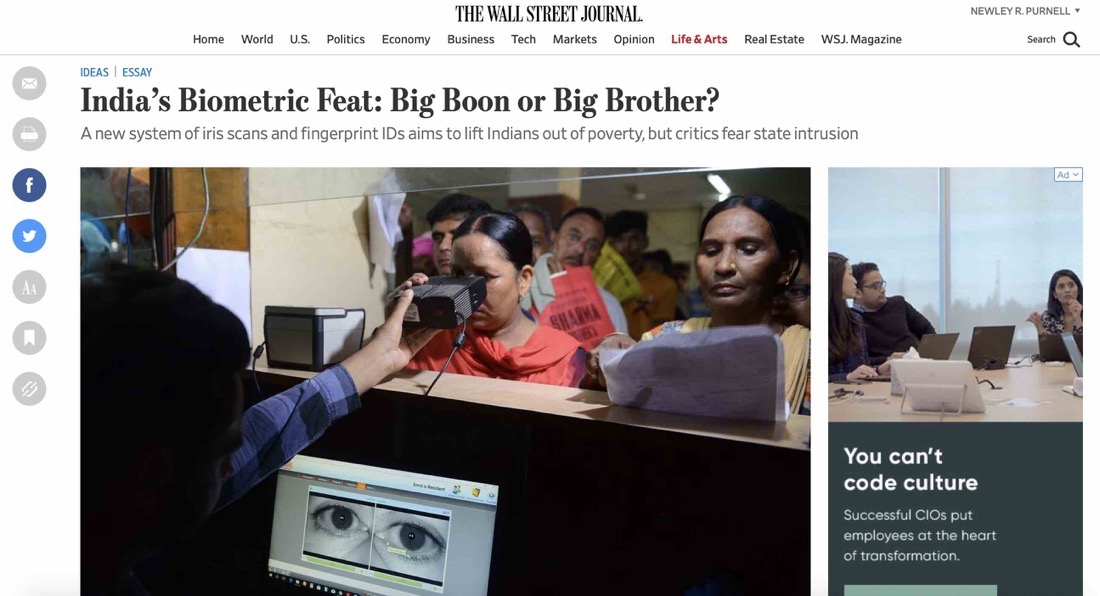
That’s the headline of my most recent story, online here and in Saturday’s print Wall Street Journal.
It begins:
Last July, after virtually every adult in India was connected to the world’s biggest biometric identity database, one of the government officials behind it issued a challenge. R.S. Sharma, who oversees the country’s telecom regulatory agency, publicly disclosed his personal ID number in the system and taunted skeptics and potential hackers. “Show me one concrete example where you can do any harm to me!” he tweeted.
Opponents of the system swarmed, looking to show the dangers of having too much information amassed in one place. They scoured the internet for Mr. Sharma’s personal data by using the ID number to help open digital doors, and claimed some prizes: They uncovered his mobile number and a photo of his daughter and were able to deposit token amounts of money in his bank account. But they couldn’t withdraw funds or corrupt his data, and Mr. Sharma claimed to have proved that the system – which has on file the irises and fingerprints of all of its participants – is secure.
Mr. Sharma’s challenge reflects the tensions over India’s unique feat. It has reached near-completion just as objections to such giant concentrations of personal data have escalated elsewhere around the world, fueled by controversies surrounding Facebook and Google. Reetika Khera, an economist at the Indian Institute of Management Ahmedabad, calls the Indian system “big data meets big brother,” and she and others have aired what they see as its failings, from invasive information-gathering about those within it to dangerous consequences for stragglers left out.
India says its system—built to cover its 1.3 billion people, a sixth of the world’s population—heralds a new model for governments to marshal citizens’ data, ease digital pathways and fuel their electronic economies, especially in the developing world. India’s Supreme Court in September ruled that the program doesn’t violate citizens’ privacy rights, removing a huge shadow over the program. “It’s mind-boggling that a country like India has pulled it off,” said Anil Jain, a Michigan State University professor who studies biometrics.